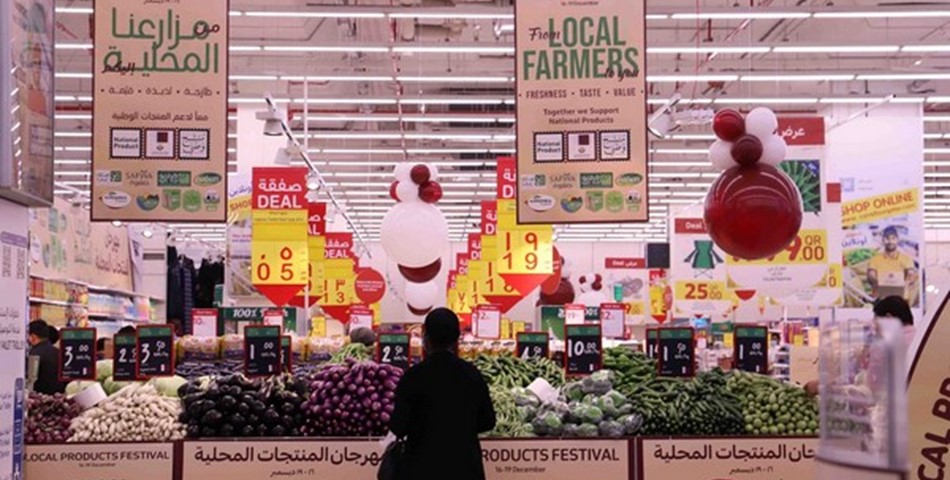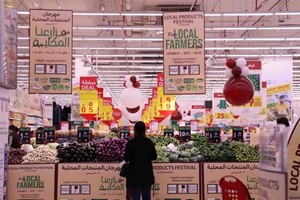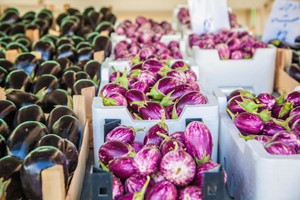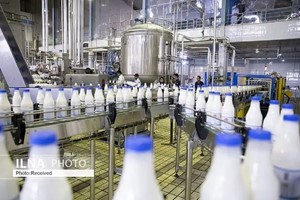Market Overview
Qatar Fruits and vegetable market is projected to grow at a CAGR of 4.2% during the forecast period (2022-2027).
The impact of Covid-19 on food security in Qatar is less threatened when compared to other countries in the region. The country performing well in ensuring food availability at affordable prices during the crisis with their sustainable technologies likes hydroponics, aquaculture, vertical farming, aquaponics, and several other related green technologies has boosted the local production in fruits and vegetables.
The Qatari agricultural sector has made significant progress in meeting local fruits and vegetables market requirements and raising the level of self-sufficiency due to the growing interest of the government. The self-sufficiency of fresh fruits and vegetables in the country is to be attained with 35 strategic projects for the production in protected facilities are intended to be introduced in the country.
The increase in the adoption of advanced farming technologies, rise in demand for organic fruits and vegetables and conducive government policies are some of the factors driving the market growth for fruits and vegetables.
Many regional companies such as Agrico are venturing into domestic fruits and vegetable cultivation by incorporating advanced farming technologies to make them available to its consumers year-round and move towards less dependency on trade imports.
Increase in Adoption of High Technology Farming Practices
Qatar's climate is characterized by low rainfall and high temperature. Despite these challenges, the country has made tremendous efforts over the last few years by adopting sustainable and smart agriculture techniques such as hydroponics, smart irrigation, and aquaponics that improved the optimum utilization of arable land and the quality of fruits and vegetables. Hydroponics a predominant system used in Vertical farming is gaining popularity among Qatar farmers, especially in growing local fruits and vegetables with minimal water resources.
The Ministry of Municipality and Environment launched Qatari Vegetables and Qatar Farms programs in co-operation with the Ministry of Commerce and Industry. These have achieved significant sales during the year 2020. The sales of Premium Qatari Vegetables reached 4,565 tons compared to 2,740 tons in 2019, an increase of about 66%. The sales of Qatar Farms for the 2020 season were about 19,000 tons compared to 11,506 tons in 2019, an increase of about 64%. Their goals are to improve local marketing operations and help the farmers market their produce, helping Qatari farmers to display their local production of high-quality vegetables at affordable prices for the consumer. The presence of advanced farming techniques such as hydroponics is enabling the availability of fruits and vegetables all year round thereby boosting Qatar's domestic production.
Increased Focus on Sustainability and Organic Food Products
The appetite for local produce products is gaining traction among Qatar consumers. Consumers perceive local produce is of better quality and are aware of the low carbon footprint for local products, which includes fruits and vegetables as compared to imported products.
Health-conscious people in Qatar prefer organic juice and are moving towards both higher quality and long-lasting juices. Consumers also want to know the farm-to-shop journey with the least carbon footprint. Therefore, Qatari companies diversifying into juices are going to adopt a range of sustainable practices.
Further, the blockade against Qatar by its neighboring countries such as Saudi Arabia, United Arab Emirates, Bahrain, and Egypt has made the Qatar government overcome the challenges and make a conducive environment for farming by using sustainable agriculture practices.
The Ministry of Municipality and Environment (MME) has allocated land for building large farms to increase the efficiency in the production of organic foods, which includes, fruits and vegetables. Qatar Ministry of Municipality and Environment (MME) has donated 72 greenhouses to 24 different nurseries. The initiative aims to support local nurseries in growing fresh produce in the summer. these greenhouses will produce 40, 000 tons of vegetables. The State Food Security Projects 2019-2023, launched by MME, aims to make Qatar 70% self-sufficient in the cultivation of fresh vegetables by 2023. Further subsidies for water and irrigation are provided to boost organic production. With conducive policies supporting domestic organic farming, the market for fruits and vegetables is expected to grow during the forecast period.














